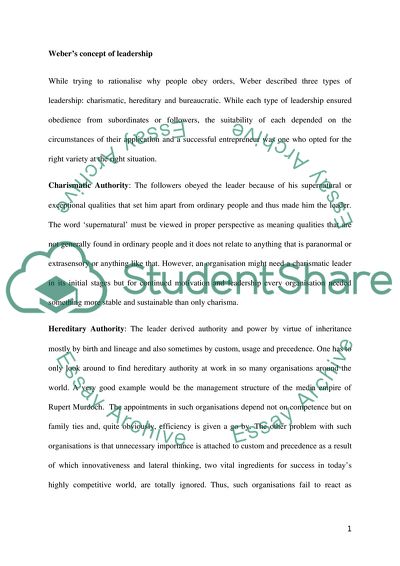Cite this document
(“Max Webers influence on Modern Management Theories Essay”, n.d.)
Max Webers influence on Modern Management Theories Essay. Retrieved from https://studentshare.org/sociology/1555338-examine-the-main-ideas-and-influence-of-max-weber-and-how-these-relate-to-our-understanding-of-management-in-society
Max Webers influence on Modern Management Theories Essay. Retrieved from https://studentshare.org/sociology/1555338-examine-the-main-ideas-and-influence-of-max-weber-and-how-these-relate-to-our-understanding-of-management-in-society
(Max Webers Influence on Modern Management Theories Essay)
Max Webers Influence on Modern Management Theories Essay. https://studentshare.org/sociology/1555338-examine-the-main-ideas-and-influence-of-max-weber-and-how-these-relate-to-our-understanding-of-management-in-society.
Max Webers Influence on Modern Management Theories Essay. https://studentshare.org/sociology/1555338-examine-the-main-ideas-and-influence-of-max-weber-and-how-these-relate-to-our-understanding-of-management-in-society.
“Max Webers Influence on Modern Management Theories Essay”, n.d. https://studentshare.org/sociology/1555338-examine-the-main-ideas-and-influence-of-max-weber-and-how-these-relate-to-our-understanding-of-management-in-society.


